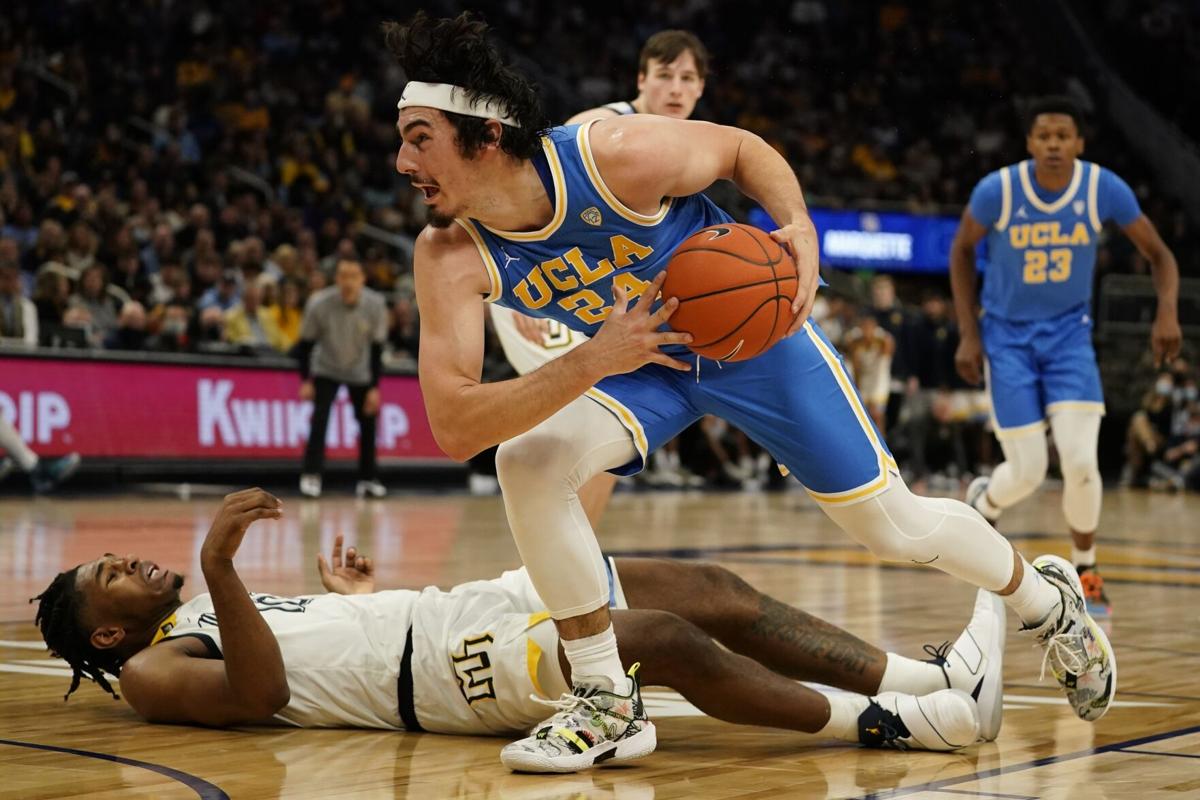The Pac-12 is discussing policy adjustments to its basketball season in the wake of COVID’s resurgence and the potential for disruption to the regular season, according to a source.
Several teams already have been impacted:
The Washington men were unable to play three games earlier this month because of a COVID outbreak.
The UCLA men and women are currently on pause after canceling multiple games.
The Arizona women canceled a date with Texas over the weekend.
The USC men won’t play Oklahoma State this week and have paused team activities.
All the impacted programs are believed to be largely, if not fully, vaccinated.
“We need to get this done before the next conference games,” the source said, referring to the onset of conference-only play next week.
It shouldn’t be a complicated process: The Pac-12 can simply dust off the appropriate COVID policies it deployed last season and present them for approval by the athletic directors and other key campus officials.
A few tweaks might be required, but the COVID policies most likely to be enacted for both the men and women include the following:
1. The threshold for competition
Last year, the conference established a minimum roster count: Teams were considered available to play if they had at least seven scholarship players and one coach.
Below that player count, the affected team was given the option to play. If it declined, the game was rescheduled or declared a no contest.
Those player and coach minimums could be implemented for the remainder of this season.
2. The approach to make-up games
If games cannot be played on schedule, they likely will be canceled, not postponed.
Last year, teams were obligated to take all reasonable steps to reschedule, and the round-robin lineup included windows for make-up games. The emphasis was on playing as many games as possible as safely as possible.
But when the Pac-12 finalized the 2021-22 league schedules a few months ago, there was no such thing as the omicron variant and the likelihood of COVID disruption appeared low. No windows for makeup dates were included.
In some cases, it might be possible to slide games back by two or three days — from Saturday to Monday or Tuesday, for example — but those instances would most likely involve travel partners.
Games that cannot be played as originally scheduled probably won’t be made up.
With this issue specifically and others generally, conference officials are in communication with peers in the Power Five about best practices.
Many leagues across the country have been impacted by COVID in a manner nobody anticipated when the schedules were set originally.
3. Canceled games being declared no contests
The original plan this season was to declare a forfeiture if any team was unable to play a conference game because of COVID.
That could change, with canceled games being deemed no contests — just as they were last season.
How might that impact Washington, which was unable to play Arizona and UCLA earlier this month? The first game was rescheduled for Jan. 25, but the latter was declared a forfeit per the established policy.
The conference could consider changing UW’s forfeit to a no contest if that policy is adopted for the remainder of the season. The decision would be made by the athletic directors.
4. Requirement for the conference title
Last year, the Pac-12 implemented the following formula for determining the regular-season champion:
A team needed to play three more games than the average number played by the entire conference in order to be eligible for the title and the No. 1 seed in the conference tournament.
That policy could be implemented for 2021-22, as well.
A fifth component essential to navigating another COVID season is outside the Pac-12’s control: The minimum number of games required to participate in the NCAA Tournament.
Currently, the number is 25. But with dozens of teams affected already — and the prospect for many more to encounter problems — the NCAA could lower the minimum requirement or waive it altogether.





